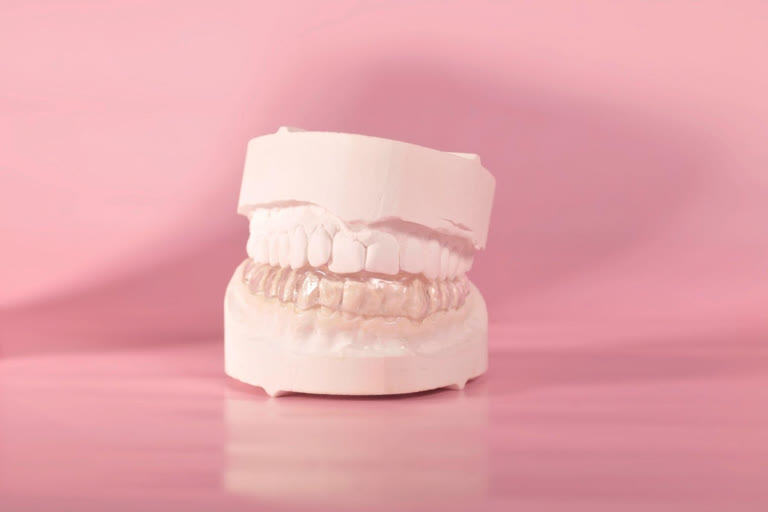Hyderabad: Many people, especially children, have the habit of grinding their teeth while sleeping at night. Grinding teeth while getting angry is a popular belief, but usually, people believe that children grind their teeth when they are scared or have nightmares while sleeping. People also say that children grind their teeth when there are worms in their stomachs.
Most of these are misconceptions, but there can be many medical reasons responsible for the problem of teeth grinding or Bruxism, such as physical conditions or diseases, mental disorders or conditions, lifestyle factors and heredity etc. Due to this problem, the maximum damage is done to the teeth.
In bruxism, the patient starts grinding and gnashing their teeth several times while sleeping or while awake. This problem is seen more in children than in adults. This condition affects the teeth most as the constant grinding leads to deterioration of the enamel or the upper layer of the teeth. There are mainly two kinds of bruxism:
- Awake Bruxism: In this condition, the habit of grinding teeth is seen in the person even while being awake, during the day. Generally, mental disorders, mental pressure or emotional problems like anger, stress or anxiety etc. are considered responsible for this.
- Sleep Bruxism: This type is seen more in children. In fact, in this condition, the patient is not even aware that they are grinding their teeth while sleeping. Sleep bruxism is also considered a sleeping disorder. Usually in adults, along with this condition, other problems related to sleep such as snoring or interruption of breathing while sleeping can also be seen.
Dr Reena Dutta (PhD), a psychologist from Delhi, states that sometimes mental disorders or unconscious neuromuscular activity can be responsible for bruxism. It is also considered one of the symptoms of some mental disorders or diseases related to the nervous system. Such as ADHD, anxiety disorder, excessive stress or anger, chronic or acute trauma, sleep apnea, epilepsy and dementia etc.
Apart from this, sometimes this problem can also be seen in people suffering from Down syndrome or some other syndrome or disorder. Sometimes excessive smoking and consumption of alcohol and caffeine are also considered reasons for this condition. Many times lifestyle-related reasons can also be responsible for this, such as not getting complete (at least seven to eight hours of sleep) and good quality sleep by adults and children, living a sedentary lifestyle instead of being active.
Also read: Machine learning identifies drugs to help smokers quit
Sometimes heredity, the side effect of any medicine, a side effect of some kind of dental treatment or any injury can also be responsible for this condition. Bruxism causes maximum damage to the teeth. In fact, due to this problem, when patient grinds their teeth knowingly or unknowingly, not just the protective layer of the teeth gets damaged, but the muscles attached to the teeth and jaws are also affected.
Dr R. S. Shiva, a dentist from Bangalore, explains that in bruxism, especially in children, due to vigorous grinding of teeth while sleeping, the enamel layer of their teeth wears off, they become crooked, and weak, leading to the risk of tooth decay. Sometimes their ability to chew food also gets affected.
Apart from this, due to bruxism, the masticatory muscles of the patient also get affected, damaging the jaw, which can lead to headaches. Dr Shiva says that people experiencing this condition must get their teeth checked regularly so that a dental problem can be stopped before it increases or efforts can be made to save the teeth.
Dr Reena Dutta says that under normal circumstances, no special treatment is required for bruxism. Improvement in lifestyle and sleep habits can help to a great extent with this condition. But because it is also counted among the symptoms of some diseases and disorders, it is better to seek medical advice if this problem persists.
Apart from this, since sleep bruxism is also considered a sleep disorder, people suffering from this problem must follow sleep discipline, like sleeping, getting up on time, sleeping for the right duration etc. Apart from this, a disciplined lifestyle and including exercise in the routine can also be of great benefit.
She explains that if any kind of mental disorder or medical condition is responsible for the occurrence of bruxism, then its proper treatment is very important. For this sometimes it may also be advised to take some therapy like stress management therapy, cognitive behavioural therapy and hypnotherapy as per the requirement. On the other hand, if the problem is causing more trouble, then a 'Night Guard' can be used, which covers your teeth to protect them from damage.



